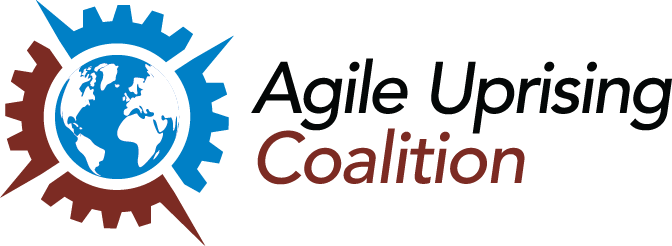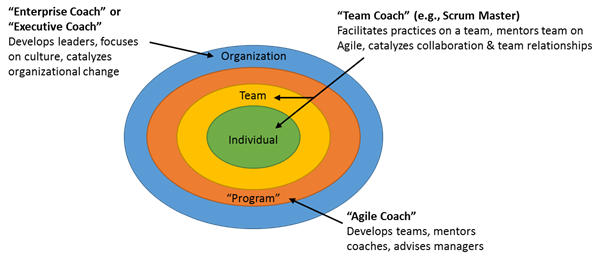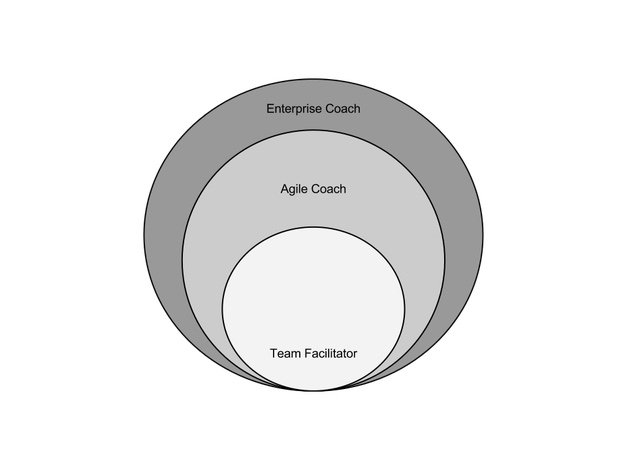This topic was recently discussed on LinkedIn. Its a great topic and one that I want to get the Coalition’s input on.
Here is my take: IMHO, the Agile Coach role has evolved due to the slow and difficult journey of adopting an agile mindset. The world is full with great Scrum Masters but many of them are still on in the earlier stages of their journey(Shu state) and most of them need the experience to learn why we need to have a value driven approach.
Unfortunately, supply has been unable to keep up with demand. Almost all organizations are moving to Scrum, but a two day class is not going to reverse many years of plan driven thinking. It will take time, but they will get there with help of mentoring and coaching.
So…enter the Agile Coach, someone who probably started as a Scrum Master many moons ago and has been positively impacted by Agile. Therefore, they are passionate about it, preach it, study it, and continue to improve at the craft. They are not organizational saviors, leadership coaches, or program coaches. Instead they are seasoned Agile practitioners who have a mature mindset (Ha and Ri) and want to help others experience the same joy they get out of Agile.
Full disclaimer; I am a Agile Coach. My goal in every engagement is to work myself out of the job. I hope some day all scrum masters are agile coaches and the position starts to dissolve. This is the ideal state, but not today’s reality. Whats your take?





 I am probably silly for taking Agile Coach off my resume:) Just be careful because now the term Agile Coach has also started to be used as someone who does not have Scrum experience or will not use it at the position. I saw that somewhere recently:)
I am probably silly for taking Agile Coach off my resume:) Just be careful because now the term Agile Coach has also started to be used as someone who does not have Scrum experience or will not use it at the position. I saw that somewhere recently:)